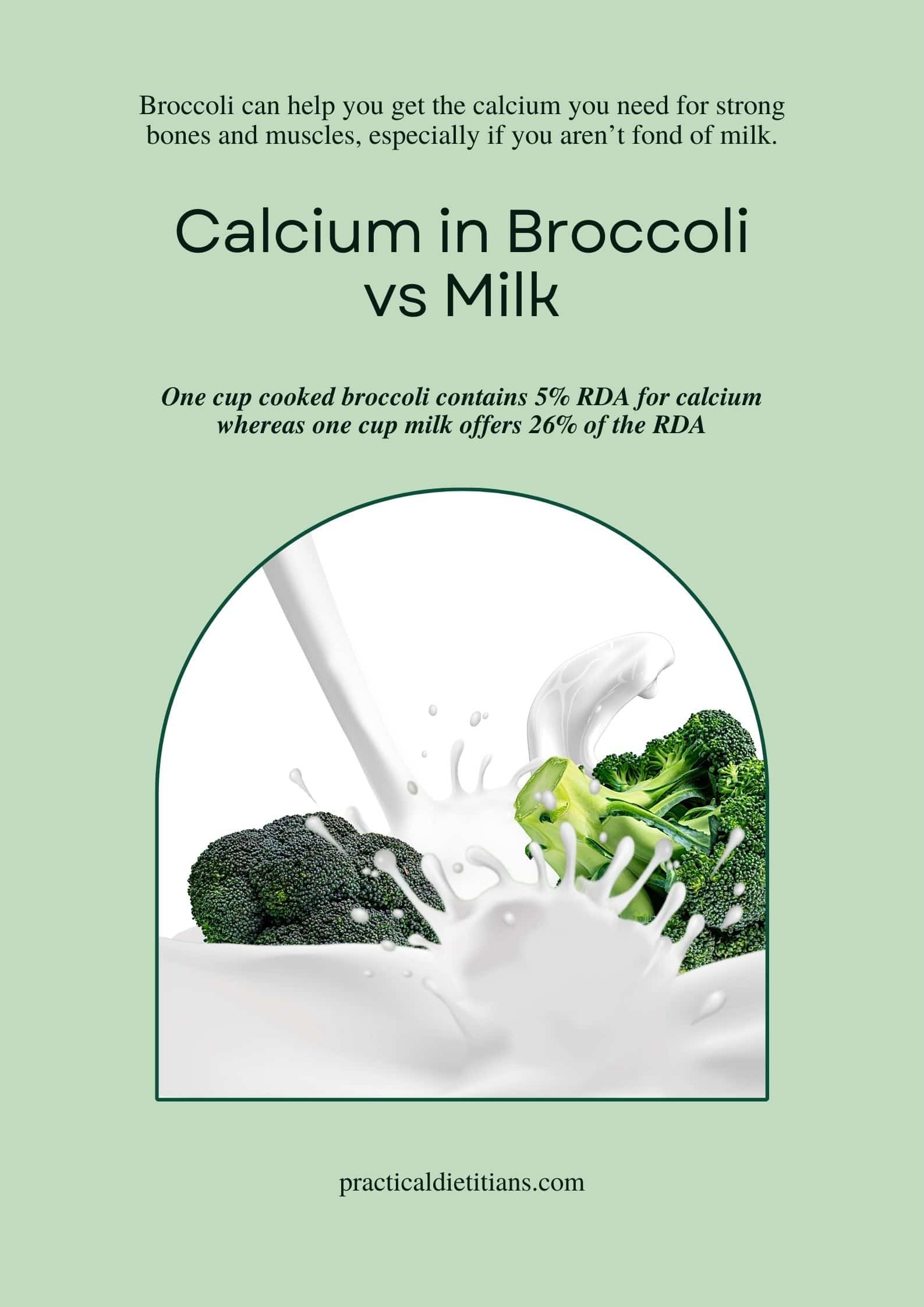Broccoli naturally contains calcium that can contribute to bone and muscle strength. Many nutrients go into building our bone matrix with calcium being only one of the necessary nutrients.
How much calcium does broccoli have?
Broccoli furnishes enough calcium to be considered a significant contributor if you do not drink milk of any kind.
Broccoli delivers calcium, potassium, magnesium, folate, vitamin C, vitamin K, and beta-carotene for vitamin A formation, fiber and phytonutrients. Even though it’s not the richest source of calcium, broccoli supplies many vital nutrients for bone building.

Calcium in broccoli vs milk
In comparison, broccoli doesn’t offer as much calcium as milk.
Still, for someone not wishing to consume milk, one cup of raw broccoli provides 43 mg or 3.5% of the recommended dietary allowance (RDA) for a female over 50 years of age.
A cup of boiled and drained broccoli provides 62 mg or 5% of the RDA. One cup of cow’s milk contributes 310 mg or 26% of the RDA.
Most milk beverages from plants contain nutrients that the manufacturer added. This fortification process raises the calcium content to comparable levels naturally occurring in dairy milk. One cup of almond milk has 482 mg of calcium or 40% of the RDA.
The same volume of soy milk furnishes 450 mg or 38% RDA. One of the newer plant milks, a cup of oat milk, delivers 350 mg or 29% RDA.
Is broccoli needed to build muscle?
While exercise is a major player in muscle development and maintenance, the right nutrients are critical.
Muscle isn’t just about protein. Calcium is essential for the contraction of your muscles throughout your body and broccoli contributes enough and is easily absorbed.
Broccoli can be included in a nutritious post-workout meal, such as chicken and a small baked potato. It also pairs well with sunflower seeds for an energizing snack.
We lose muscle mass as we age causing our metabolism to decrease by about 10%.
Broccoli along with a mix of other whole foods contains an array of nutrients that work together to keep our muscles and bones at their best.
Is your body using the calcium in broccoli?
The nutrients in dairy milk help with the absorption of calcium, including lactose and casein. Vitamin D also helps with the absorption of calcium. Vitamin D is found in fortified milk.
This combination of lactose, casein, and vitamin D makes calcium in cow’s milk highly absorbable for use by your body. Plant milks do not contain lactose and casein, so the calcium in those beverages is less absorbable.
Oxalate is a substance found in food that tends to bind with dietary calcium, preventing its absorption.
Veggies high in oxalates keep some of the calcium in those foods from being absorbed. The calcium in broccoli is more absorbable because it is low in oxalate.
Conclusion
Broccoli does have calcium that is absorbable by your body. It does not contain as much calcium as cow or plant milk beverages, but for someone who isn’t fond of milk, it can significantly contribute to your calcium intake.
Broccoli not only contains calcium but an array of nutrients that help keep our bones and muscles at their best.
If you enjoyed this blog and would like more information on maintaining your strength as you grow older, be sure to check out our book, Advancing to a Healthier You! Available on Amazon.


